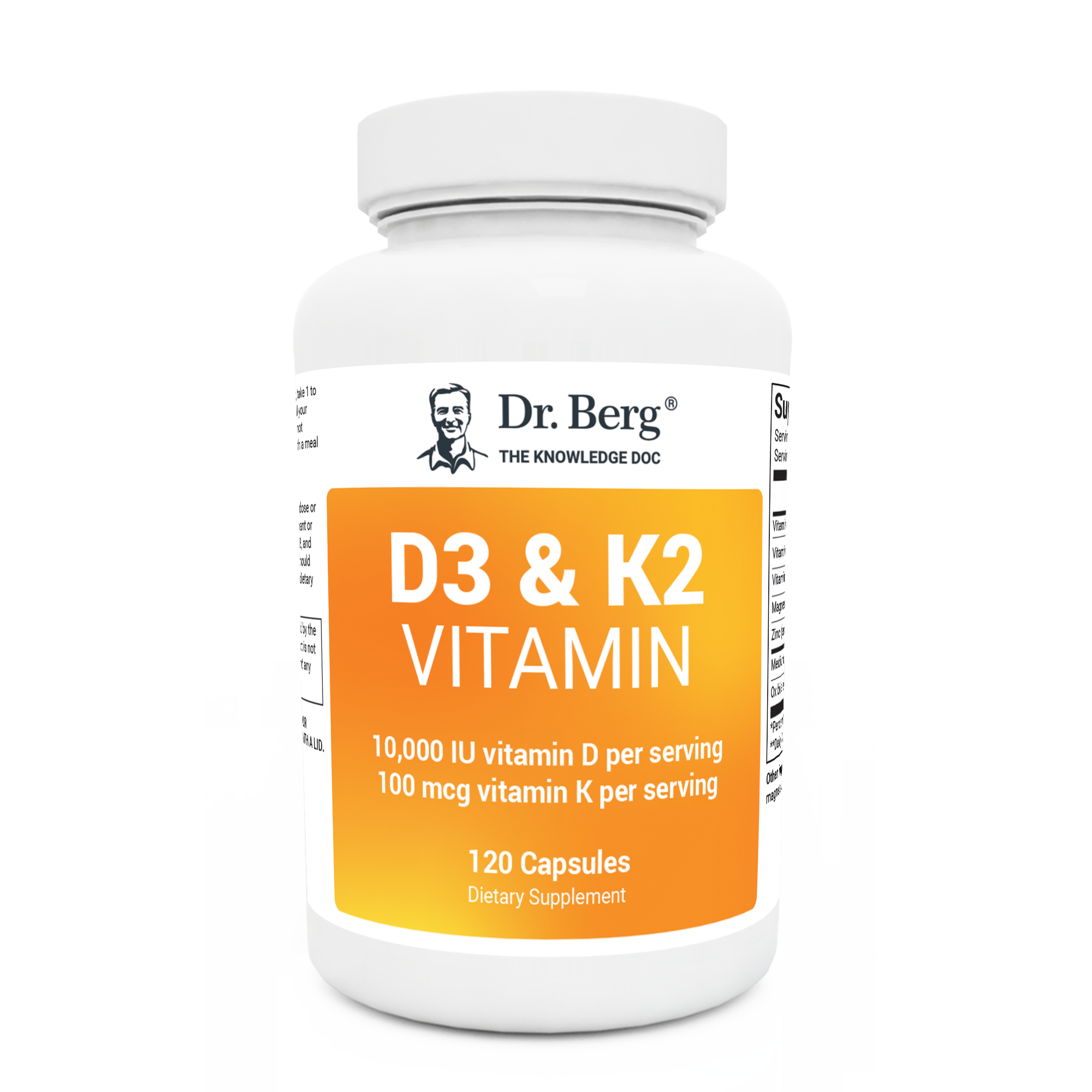- Reaction score
- 179
- Home
- Forums
- Men's Hair Loss Discussions
- New Research, Studies, and Technologies
- Hair Loss and Alopecia Published Studies
You are using an out of date browser. It may not display this or other websites correctly.
You should upgrade or use an alternative browser.
You should upgrade or use an alternative browser.
Vitamin D deficiency is correlated with severity of androgenetic alopecia
- Thread starter 5minutesbeforemiracle
- Start date
- Reaction score
- 1,325
5000UI daily to cover this angle. Checked.
- Reaction score
- 3,654
Magnesium should also be taken into account as it is necessary to convert Vitamin D into its active form.

 pubmed.ncbi.nlm.nih.gov
pubmed.ncbi.nlm.nih.gov

 pubmed.ncbi.nlm.nih.gov
pubmed.ncbi.nlm.nih.gov

Magnesium Supplementation in Vitamin D Deficiency - PubMed
Vitamin D screening assay is readily available, but the reported lower limit of the normal range is totally inadequate for disease prevention. Based on the epidemiologic studies, ∼75% of all adults worldwide have serum 25(OH)D levels of <30 ng/mL. Because of the recent increase in global awarenes …

Low serum concentrations of 1,25-dihydroxyvitamin D in human magnesium deficiency - PubMed
The effect of magnesium deficiency on vitamin D metabolism was assessed in 23 hypocalcemic magnesium-deficient patients by measuring the serum concentrations of 25-hydroxyvitamin D (25OHD) and 1,25-dihydroxyvitamin D [1,25-(OH)2D] before, during, and after 5-13 days of parenteral magnesium...
- Reaction score
- 1,325
But a dermatologist will invariably do a Vit D test in your blood serum, not so much on magnesium. Why is that?
Also, Vitamin K2 is essential to be taken with Vitamin D3.
I've actually just ordered from Dr Bergs online store a supplement that had 10 000iu Vitamin D3 + 100mcg Vitamin K2 + 25mg Magnesium + some other important stuff.
High quality stuff.

 shop.drberg.com
shop.drberg.com
I've actually just ordered from Dr Bergs online store a supplement that had 10 000iu Vitamin D3 + 100mcg Vitamin K2 + 25mg Magnesium + some other important stuff.
High quality stuff.

D3 & K2 Vitamin (10,000 IU) - 120 capsules | Dr. Berg
Get high-quality vitamins with Dr. Berg D3 & K2 Vitamin. Each serving is loaded with 10,000 IU of D3 and 100 mcg of K2. 120 easy-to-swallow capsules.
Last edited:
- Reaction score
- 194
Vitamin D3+ K2 MK-7. A must for Androgenic Alopecia
- Reaction score
- 1,325
Yes, I am getting this from this brand combined. Looks pretty legit (and expensive.)
Important extra note:
 onlinelibrary.wiley.com
onlinelibrary.wiley.com
Menaquinone-7 supplementation, when compared to placebo, significantly decreased serum fasting insulin (p = .002), homeostasis model of assessment insulin resistance (p = .002), and homeostasis model of assessment β-cell function (p = .02) in addition to a significant increase in quantitative insulin sensitivity check index (p = .001). Also, MK-7 administration led to significant declines in serum triglyceride (p = .003) and dihydrotestosterone (DHT; p = .03) levels, free androgen index (p < .001), waist circumference (p = .03), and body fat mass (p < .001) as well as significant increases in skeletal muscle (p < .001) and sex hormone binding globulin (SHBG, p < .001).
I can only see more benefits here.
Error - Cookies Turned Off
Menaquinone-7 supplementation, when compared to placebo, significantly decreased serum fasting insulin (p = .002), homeostasis model of assessment insulin resistance (p = .002), and homeostasis model of assessment β-cell function (p = .02) in addition to a significant increase in quantitative insulin sensitivity check index (p = .001). Also, MK-7 administration led to significant declines in serum triglyceride (p = .003) and dihydrotestosterone (DHT; p = .03) levels, free androgen index (p < .001), waist circumference (p = .03), and body fat mass (p < .001) as well as significant increases in skeletal muscle (p < .001) and sex hormone binding globulin (SHBG, p < .001).
I can only see more benefits here.
Important extra note:
Error - Cookies Turned Off
onlinelibrary.wiley.com
Menaquinone-7 supplementation, when compared to placebo, significantly decreased serum fasting insulin (p = .002), homeostasis model of assessment insulin resistance (p = .002), and homeostasis model of assessment β-cell function (p = .02) in addition to a significant increase in quantitative insulin sensitivity check index (p = .001). Also, MK-7 administration led to significant declines in serum triglyceride (p = .003) and dihydrotestosterone (DHT; p = .03) levels, free androgen index (p < .001), waist circumference (p = .03), and body fat mass (p < .001) as well as significant increases in skeletal muscle (p < .001) and sex hormone binding globulin (SHBG, p < .001).
I can only see more benefits here.
Yes Vitamin K2 is extremely important and quite rare besides in supplement form.
It also helps to reduce calcification which we know can cause hairloss. This combination of Dr Bergs including Vitamin D3 10 000 IU + Magnesium 25mg + Vitamin K2 100mcg + Vitamin B6 30mg + Zinc 20mg + Medium Chain Triglycerides 10mg (PER SERVING which is all in ONE Capsule) is the best combination I've seen.
It's important to note when fixing a Vitamin D deficiency you need to treat it with high dose Vitamin D3 around 10 000iu.
We also know the importance of Zinc and Vitamin B6 taken in combination.
So this supplement is a Good high dose + 120 Capsules which will last 4 months! Excellent value for money.
Last edited:
I managed to fix my Vit D3 deficiency by taking D3+K2 (MK-7) only about twice a week and sometimes thrice a week. I performed a blood test, and I went from 6.7 ng/mL (severe) to 37 ng/mL (normal levels) in about 3-4 months. The good with D3+K2 is that are fat-soluble, so you can do the trick with lower dosages as well. I have to admit, though, that I didn't notice improvements in my hair. Maybe a bit of reduction in shedding, and probably I should have stuck with it more. I stopped for about 2 months, and now I have started taking it again. I think it was a bad move, for both my PTH hormone and my D3. I should stick with it because I don't have great food sources for vitamin D in my diet. Also, I have read some studies that it can trigger and worsen telogen effluvium conditions. So, that is something to consider. Also, this is a great site that explains vitamin D and PTH relationships->https://www.parathyroid.com/low-vitamin-d.htmYes Vitamin K2 is extremely important and quite rare besides in supplement form.
It also helps to reduce calcification which we know can cause hairloss. This combination of Dr Bergs including Vitamin D3 10 000 IU + Magnesium 25mg + Vitamin K2 100mcg + Vitamin B6 30mg + Zinc 20mg + Medium Chain Triglycerides 10mg (PER SERVING which is all in ONE Capsule) is the best combination I've seen.
It's important to note when fixing a Vitamin D deficiency you need to treat it with high dose Vitamin D3 around 10 000iu.
We also know the importance of Zinc and Vitamin B6 taken in combination.
So this supplement is a Good high dose + 120 Capsules which will last 4 months! Excellent value for money.
Last edited:
Effects of vitamin D as a regulator of androgen intracrinology in LNCAP prostate cancer cells:

Effects of vitamin D as a regulator of androgen intracrinology in LNCAP prostate cancer cells - PubMed
Prostate cancer is initially treated via androgen deprivation therapy (ADT), a highly successful treatment in the initial pursuit of tumor regression, but commonly restricted by the eventual emergence of a more lethal 'castrate resistant' form of the disease. Intracrine pathways that utilize...
Prostate cancer is initially treated via androgen deprivation therapy (ADT), a highly successful treatment in the initial pursuit of tumor regression, but commonly restricted by the eventual emergence of a more lethal 'castrate resistant' form of the disease. Intracrine pathways that utilize dehydroepiandrosterone (DHEA) or other circulatory precursor steroids, are thought to generate relevant levels of growth-stimulating androgens such as testosterone (T) and dihydrotestosterone (DHT). In this study, we explored the capacity of the active vitamin D hormone to interact and elicit changes upon this prostatic intracrine pathway at a metabolic level. We used androgen dependent LNCaP cells cultured under steroid-depleted conditions and assessed the impact of vitamin D-based compounds upon intracrine pathways that convert exogenously added DHEA to relevant metabolites, through Mass Spectrometry (MS). Changes in relevant metabolism-related gene targets were also assessed. Our findings confirm that exposure to vitamin D based compounds, within LNCaP cells, elicits measurable and significant reduction in the intracrine conversion of DHEA to T, DHT and other intermediate metabolites within the androgenic pathway. The aassessment and validation of the biological model and analytical platforms were performed by pharmacological manipulations of the SRD5α and HSD-17β enzymes. The data provides further confirmation for how a vitamin D-based regime may be used to counter intracrine mechanisms contributing to the emergence of castrate-resistant tumors.
The Importance of Vitamin-D in Androgenic Alopecia and Telogen Effluvium:
Journal of Clinical Medicine of Kazakhstan
Aim: Androgenic alopecia (AA) is defined as progressive miniaturization of scarless hair follicle prevailing among both male and female. Telogen effluvium (Telogen Effluvium) is the most common hair loss form accompanying systemic diseases. It is aimed to determine the role of vitamine D, the significance of...
www.clinmedkaz.org
Aim: Androgenic alopecia (AA) is defined as progressive miniaturization of scarless hair follicle prevailing among both male and female. Telogen effluvium (Telogen Effluvium) is the most common hair loss form accompanying systemic diseases. It is aimed to determine the role of vitamine D, the significance of which has been increasing in recent years, in hair loss problem within the scope of this study.
Methods: The patients who applied to Dermatology clinic with the complaint of hair loss and diagnosed androgenic alopecia and telogen effluvium by clinic examination between the years 2015-2016 were included into this study. The age, gender and 25’OHvitamin-D level of the patients were recorded retrospectively.
Results: One-hundred eighty seven (N=187) participants (140 female / 47 male) were included in this study. Fifty-eight (N=58) patients (28 female / 30 male) with androgenic alopecia diagnosis formed the first group; 71 patients (65 female / 6 male) with telogen effluvium were formed the second group and 58 healthy volunteers (47 female / 11male) were included in the control group. When Vitamin-D level of first group (AA) was compared with that of the second group (Telogen Effluvium) and the control group, there was a statistically significant difference observed (p=0.01/p=0.01 respectively). However, there was no statistically significant difference between the vitamin-D level of second group (Telogen Effluvium) and that of the healthy control group (p=0.61).
Conclusion: The level of 25'(OH) vit D was found high in androgenic alopecia group than telogen effluvium and controls. Revealing the relationship between vitamin-D level and hair loss might give us the opportunity to come up with new treatment options considering refractory patients.
Efficacy of Oral Vitamin D 3 Therapy in Patients Suffering from Diffuse Hair Loss (Telogen Effluvium):
Efficacy of Oral Vitamin D3 Therapy in Patients Suffering from Diffuse Hair Loss (Telogen Effluvium)
Access full-text academic articles: J-STAGE is an online platform for Japanese academic journals.
The aim of the present study was to estimate the prevalence of telogen effluvium (Telogen Effluvium) and to evaluate the efficacy of vitamin D in the treatment of this problem in women belonging to various cities of south Punjab, Pakistan. In the present study, 40 adult women suffering from the problem of Telogen Effluvium were included. Each woman was treated with oral vitamin D3 (200,000 IU) therapy fortnightly and a total of 6 doses were given to each patient. After 15 d of the last dose, the condition of patients was assessed clinically. The mean age of female patients was 32.2±1.5 y, 42.5% of the patients between 21–30 y of age were found to be more frequently affected with Telogen Effluvium compared to 35% females of 31–40 y of age. Results showed significant improvement in hair growth in young (r=0.457 p<0.003) women and in those, which do not use sunscreen (r=−0.331 p<0.037) but commonly utilize milk or milk protein (r=−0.311 p<0.051). Vitamin D3 therapy resulted in the improvement of the condition in 82.5% (p<0.001) patients of Telogen Effluvium. The use of oral vitamin D3 (200,000 IU, fortnightly) for 3 mo resulted in significant improvement in hair regrowth in the patient of Telogen Effluvium. Results showed improvement in hair growth in young women those do not use sunscreen but commonly utilize milk or milk protein.
If I hadn't done so many blood tests that I have done until now, I wouldn't know anything about my health in general. Hair has led me to all these. Searching and searching. Dermatologists and Endocrinologists are sometimes so strict prescribing specific things. Of course, I am not a master. Doctors are doctors. I'm just saying.But a dermatologist will invariably do a Vit D test in your blood serum, not so much on magnesium. Why is that?
Last edited:
- Reaction score
- 1,325
covid and lockdowns haven't help to get D from the sun.
- Reaction score
- 179
What's the purpose of megadosing? That much seems like overkill.It's important to note when fixing a Vitamin D deficiency you need to treat it with high dose Vitamin D3 around 10 000iu.
What's the purpose of megadosing? That much seems like overkill.
Fixing low levels takes a really long time at normal recommended doses and usually barely makes a dent at the depleted levels.
You often need to go far above the daily recommended dosages to fix such, as it has been depleted for some time, so you are repairing the backlog.
It is common for doctors to start at 10 000iu's to fix Vitamin D deficiency. Infact Vitamin D3 has been said to be safe for far higher dosages.
High dosing helps to FastTrack depleted levels. It's very common in many vitamin and mineral Supplements to see at the back of the bottle that there's dosings far above the Daily Recommended Allowance.
If you're mainly indoors most of the day, everyday, you're very likely to be deficient in Vitamin D.
This short video explains it.
